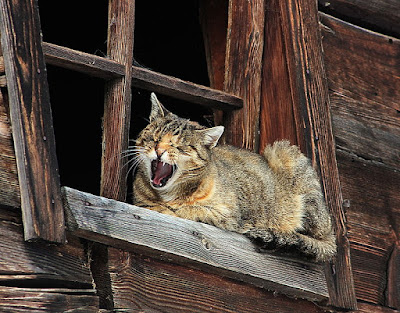CorporateNature No 153
By George ELIOT
If RIVERS are a metaphor for the startup world (fresh, fast flowing and ever changing), the OCEAN is analogous to the corporate world (stagnant, vast but occasionally tempestuous).
Most fish species live in either rivers or the ocean. However, there are two interesting fish families that move between the two: eels and salmon.
A) EELS
Eels are born in the ocean but spend their adult life in rivers. They are a metaphor for a corporate employee who at some point becomes an entrepreneur.
B) SALMON
Salmon are born in rivers but spend their life in the ocean. They are a metaphor for an entrepreneur who moves into the corporate world.
Just as both fish species are highly valued and important for the ecosystem, both types of professionals create value for the economy and society. Which of the two is more interesting remains up to you.
 |
| Eel (Source: Wikipedia) |




